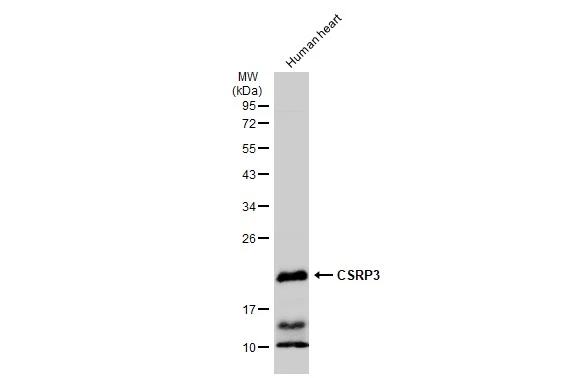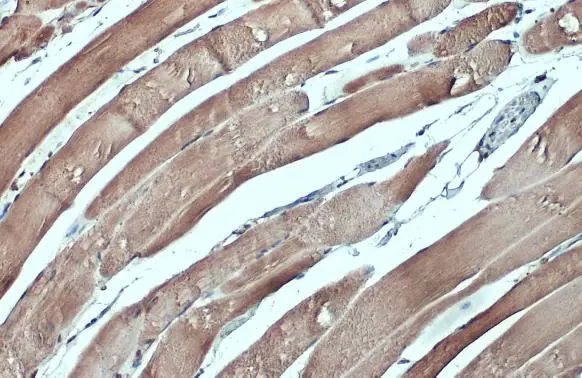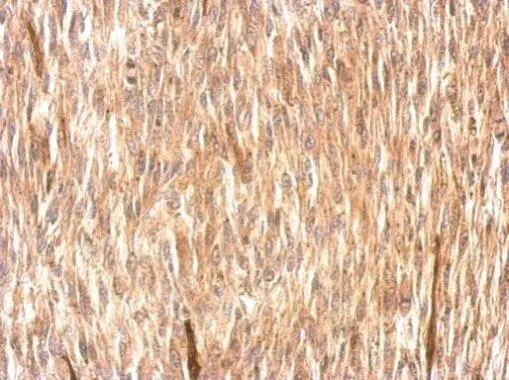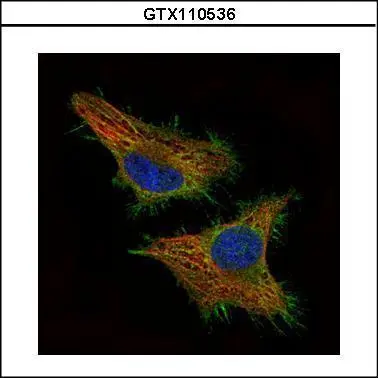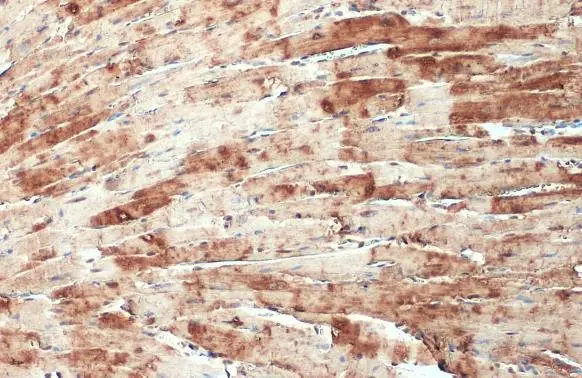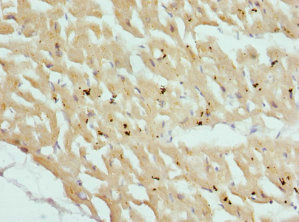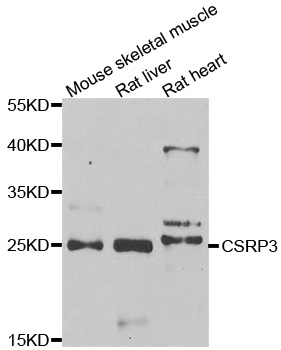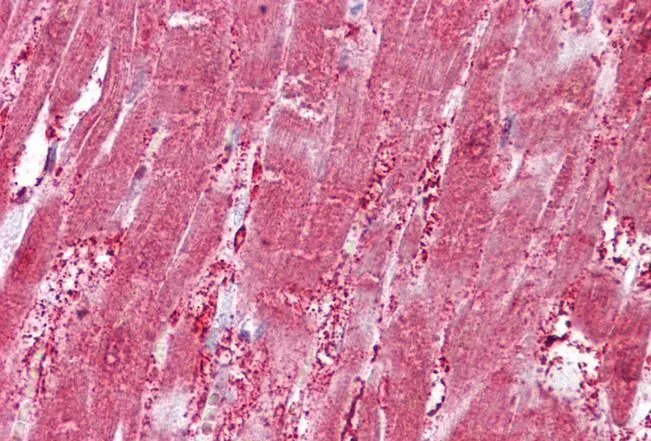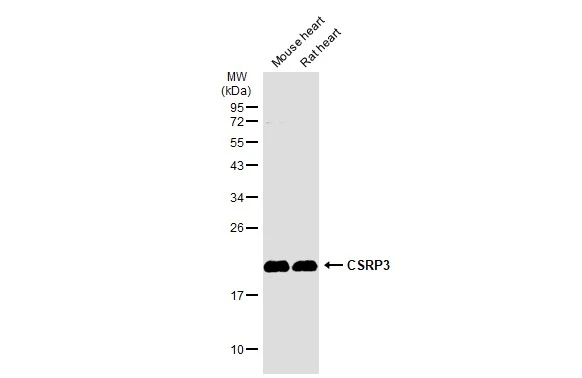
Various tissue extracts (50 μg) were separated by 12% SDS-PAGE, and the membrane was blotted with CSRP3 antibody (GTX110536) diluted at 1:1000. The HRP-conjugated anti-rabbit IgG antibody (GTX213110-01) was used to detect the primary antibody.
CSRP3 antibody
GTX110536
ApplicationsImmunoFluorescence, Western Blot, ImmunoCytoChemistry, ImmunoHistoChemistry, ImmunoHistoChemistry Paraffin
Product group Antibodies
ReactivityHuman, Mouse, Rat
TargetCSRP3
Overview
- SupplierGeneTex
- Product NameCSRP3 antibody
- Delivery Days Customer9
- Application Supplier NoteWB: 1:500-1:3000. ICC/IF: 1:100-1:1000. IHC-P: 1:100-1:1000. *Optimal dilutions/concentrations should be determined by the researcher.Not tested in other applications.
- ApplicationsImmunoFluorescence, Western Blot, ImmunoCytoChemistry, ImmunoHistoChemistry, ImmunoHistoChemistry Paraffin
- CertificationResearch Use Only
- ClonalityPolyclonal
- Concentration0.55 mg/ml
- ConjugateUnconjugated
- Gene ID8048
- Target nameCSRP3
- Target descriptioncysteine and glycine rich protein 3
- Target synonymsCLP, CMD1M, CMH12, CRP3, LMO4, MLP, cysteine and glycine-rich protein 3, LIM domain only 4, cardiac LIM domain protein, cysteine and glycine-rich protein 3 (cardiac LIM protein)
- HostRabbit
- IsotypeIgG
- Protein IDP50461
- Protein NameCysteine and glycine-rich protein 3
- Scientific DescriptionThis gene encodes a member of the CSRP family of LIM domain proteins, which may be involved in regulatory processes important for development and cellular differentiation. The LIM/double zinc-finger motif found in this protein is found in a group of proteins with critical functions in gene regulation, cell growth, and somatic differentiation. Mutations in this gene are thought to cause heritable forms of hypertrophic cardiomyopathy (HCM) and dilated cardiomyopathy (DCM) in humans. Alternatively spliced transcript variants with different 5 UTR, but encoding the same protein, have been found for this gene. [provided by RefSeq]
- ReactivityHuman, Mouse, Rat
- Storage Instruction-20°C or -80°C,2°C to 8°C
- UNSPSC41116161

